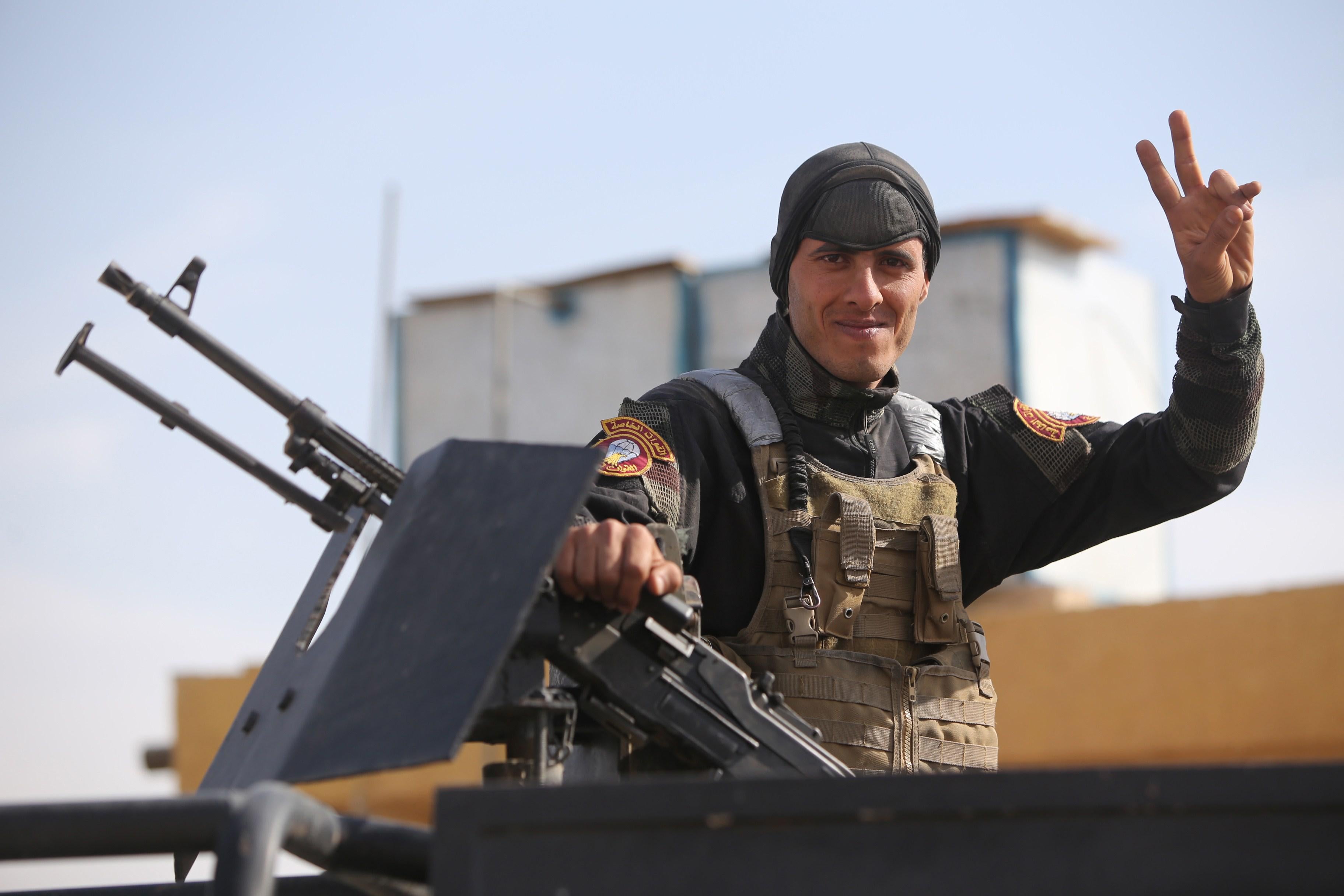On May 15, Marine Brig. Gen. Thomas D. Weidley, chief of staff for Combined Joint Task Force Operation Inherent Resolve, assured reporters that “We believe across Iraq and Syria that Daesh is losing and remains on the defensive.” As the Long War Journal noted, Weidley’s timing couldn’t have been worse: That same day ISIS drove Iraqi troops out of Ramadi in the group’s biggest strategic victory of the year.
The setback has raised some doubts about whether the administration and the Pentagon have been far too sunny in their assessments of progress against ISIS. Weidley’s comments have not been unusual, even post-Ramadi.
American and Iraqi officials have described the loss of the capital of Anbar province as an anomaly, noting that ISIS fighters took advantage of a sandstorm that delayed American warplanes and suggesting that they may have been galvanized by the release of a rare recording of leader Abu Bakr al-Baghdadi several days earlier. (If Baghdadi’s sermons are quite that inspirational, let’s hope he doesn’t start recording them more often.)
More dubiously, the Pentagon had downplayed the importance of the city in the weeks leading up to the capture, with Joint Chiefs Chairman Adm. Martin Dempsey saying, “I would much rather that Ramadi not fall, but it won’t be the end of a campaign should it fall.” He also called the loss of a city that was the site of one of the hardest-fought campaigns of the Iraq war “not symbolic in any way.”
“We have seen a lot of success, but we’ve also seen significant periods of setback,” White House spokesman Josh Earnest said Tuesday, countering suggestions that Ramadi marked a significant turning point.
U.S. commanders have been describing ISIS as having “peaked” or being “on defense” in statement after statement since the fall of 2014—but a lot of anti-ISIS progress has been ambiguous at best. After Ramadi, reading Vice President Biden’s confident early-April proclamation that “ISIL’s momentum in Iraq has halted and in many places has been flat-out reversed,” it’s hard not to be reminded of his predecessor assuring the country that the Iraqi insurgency was in its “last throes” in 2005.
To be fair, Obama has stressed from the beginning that this would be a long campaign, and even his most optimistic pronouncements on the situation have been tempered with reminders that “this is a difficult mission, and it will remain difficult for some time.”
There also has been some significant progress against the group. According to figures released by the Pentagon in April, between 25 percent and 30 percent of the territory ISIS originally conquered in Iraq has been retaken. As the Daily Beast pointed out, this is misleading as it doesn’t take into account territory ISIS has gained during that period. But even so, it’s a significant change since January, when that number was only 1 percent.
Many of those gains were by Kurdish forces in northern Iraq, but ISIS’s most significant loss so far, Tikrit in early April, came at the hands of Shiite militias and Iraq’s long-suffering military. There are also reports of internal strife and money troubles within the Islamic State, and the recent Special Forces raid that killed a senior ISIS commander in Syria suggested that U.S. intelligence on the group is improving.
However, the previously much-touted plan to retake Mosul, which military planners once confidently promised would happen this spring, appears to be indefinitely postponed. A month after the Iraqi government claimed to have completely retaken the oil refinery at Baiji, which Dempsey described as “a more strategic location” than Ramadi, control of the site is once again contested.
Iraqi forces have claimed to have the upper hand at Baiji for over six months, but a Pentagon spokesman conceded earlier this month that it was “difficult to say how it’s going to turn out.” Even if the victory at Ramadi was just a weather-assisted stroke of luck, it’s one that seems to have given ISIS more momentum as it pushes east toward Baghdad. Whatever ISIS’s internal strength, it’s hard to make the case that the group is “on the defensive” when it continues to launch offensives.
Beyond questions of territory, the administration still doesn’t have a good answer for the much trickier question of how ISIS can be pushed back without a reliable and cohesive Iraqi military. And that’s not even getting into the situation in Syria, where ISIS continues to make gains, taking control of the ancient city of Palmyra on Wednesday.
The White House is now saying it will “tweak the strategy” in Iraq after the loss of Ramadi, rather than upend it. This will likely mean indefinitely putting off plans to retake the city of Mosul, which had been a major U.S. priority but one that the Iraqi government had been less enthusiastic about, to focus on retaking key parts of the heavily Sunni Anbar province. The U.S. will also push for the arming and training of anti-ISIS Sunni tribal fighters, something the Shiite-dominated government has been doing fairly halfheartedly for the past few months.
I might suggest that the administration and its military commanders also try to make their progress reports a bit more believable before the Baghdad Bob comparisons start to appear.
